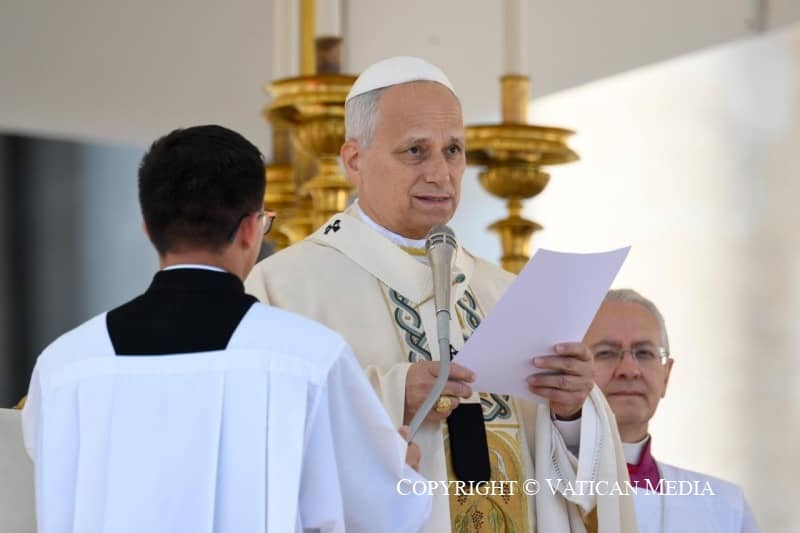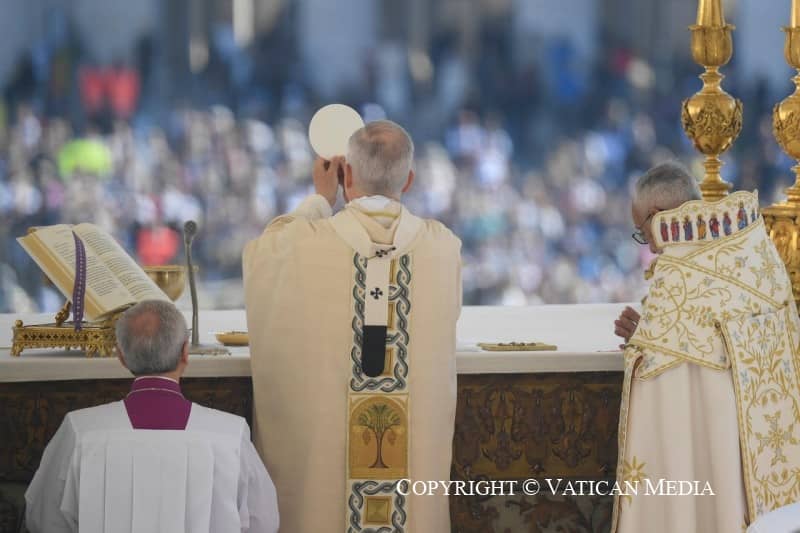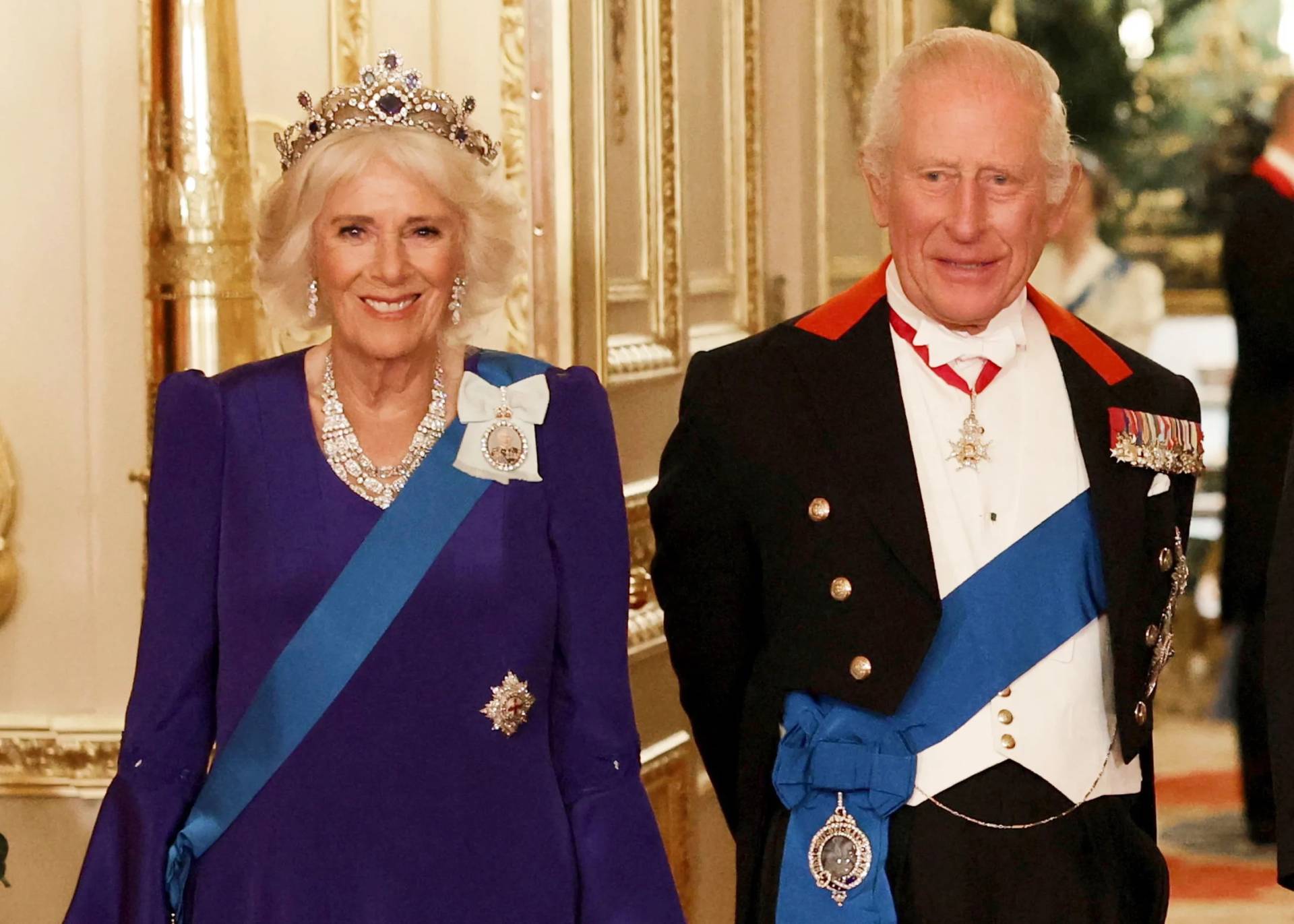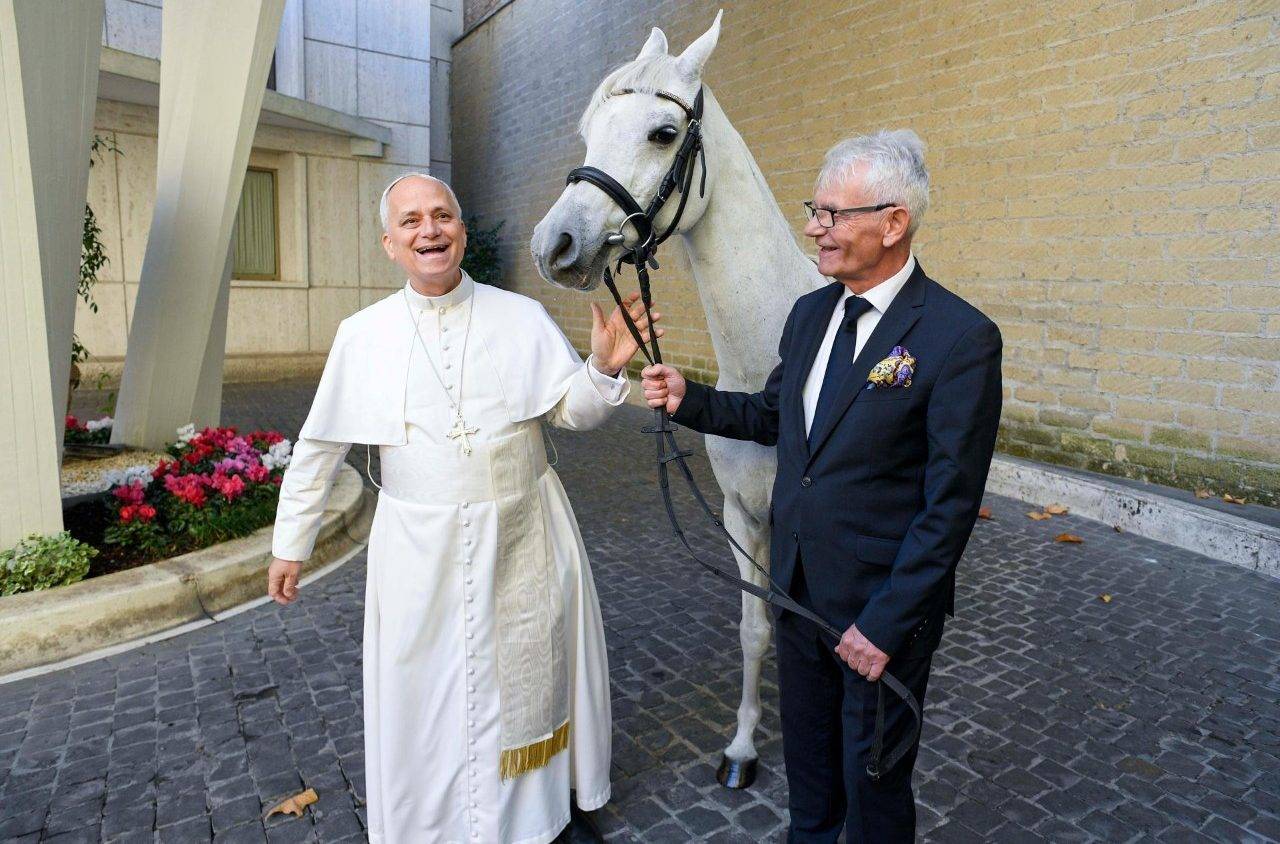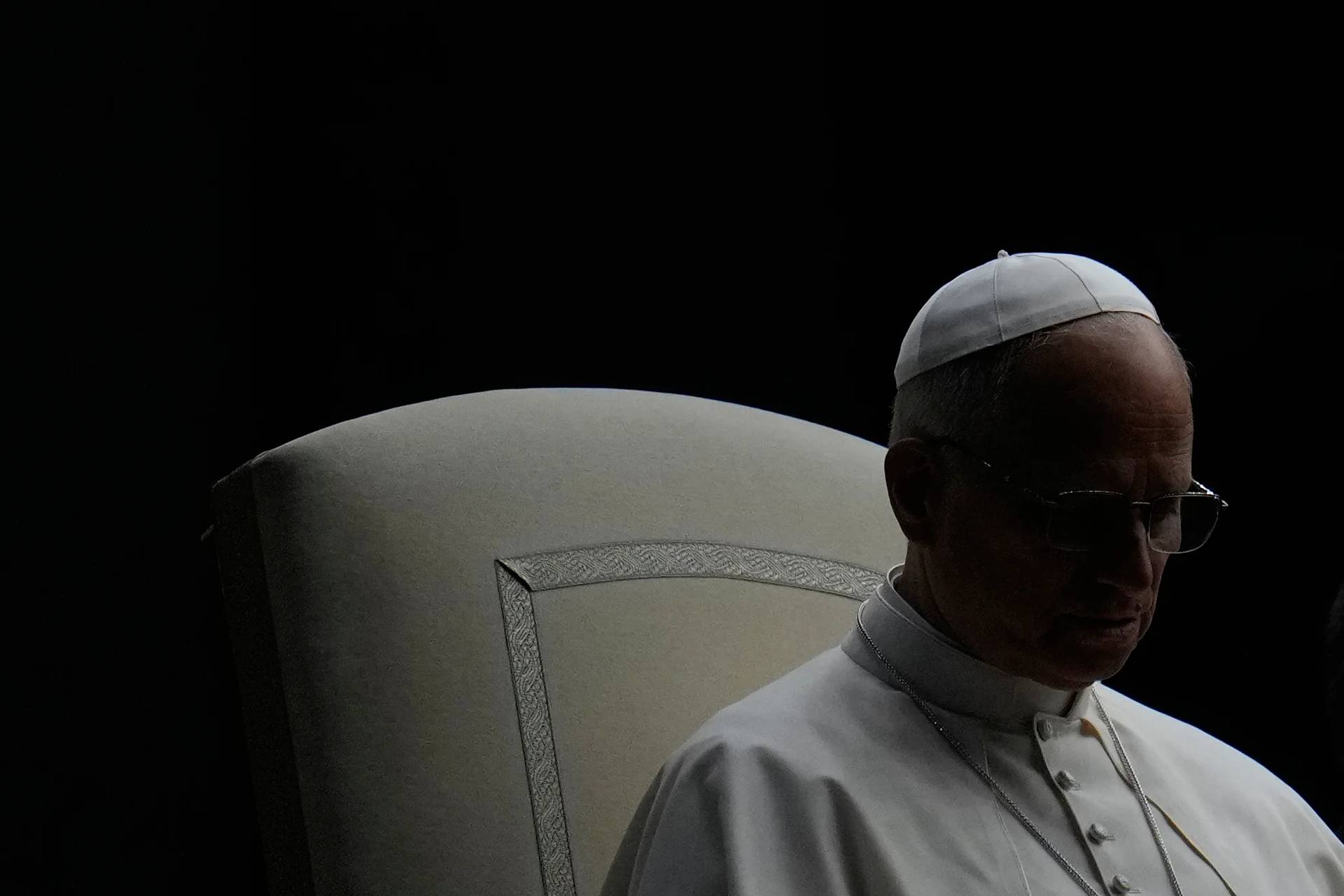By tradition, the words are famously St. Francis of Assisi’s: “Preach the Gospel always, and when necessary use words.” The pope who now carries his name offered a classic example of some nonverbal preaching Saturday, using a traditional Roman pageant to lift up new cardinals from some of the world’s poorest nations.
Francis presided over a consistory on Saturday, the event in which a pope creates new cardinals, surrounded by almost 200 other cardinals as well as his predecessor, Pope Benedict XVI. (It was the first time new cardinals have been created in the presence of two popes.) The 19 new princes of the church included churchmen from Haiti, Burkina Faso, and Ivory Coast, all three among the world’s most desperate societies.
In Haiti, the pope bypassed the leaders of the country’s two archdioceses, who according to the usual logic would have had better claim to the honor, in order to tap the bishop of a small diocese in the country’s southwest, a man who was himself born into a poor family.
In effect, Francis seemed to want his first consistory to embrace the “periphery” in every possible sense.
“It’s the pope’s prerogative to make whoever he wants a cardinal, but it’s fair to say that I was an unusual choice,” Chibly Langlois said in an interview Friday with the Globe.
“I think it’s rooted in the Gospel,” Langlois said, “symbolizing the pope’s determination to leave no stone unturned in reaching out to the poor.”
He said that giving the country a cardinal has stirred the hopes of Haitians of all stripes.
“It’s created tremendous joy, independently of someone’s religion, whether they’re Catholic or Protestant or whatever,” he said. “Haitians feel a craving for somebody to finally notice them, which is why this means so much to the whole country.”
One sign of the ferment is that Haiti’s embattled president Michel Martelly, a former Creole musician known by the stage name of “Sweet Micky,” was on hand in Rome for the ceremony.
Yet Langlois argued that Francis wasn’t just talking to Haitians in this consistory — he was delivering a message to the rest of the church.
“He chose a small diocese . . . to express that the church needs the poor to set its direction,” he said. “The future of the universal church under this pope runs through the poor.”
Langlois noted that the Jan. 12 announcement of his nomination fell precisely on the four-year anniversary of a devastating 2010 earthquake in Haiti that left anywhere between 150,000 and 300,000 dead — the precise body count is still debated — and hundreds of thousands more homeless. He called it “providential” that the pope delivered a shot in the arm at a moment Haiti was recalling its most recent source of anguish.
All indications are that Langlois won’t be bashful about using the megaphone the pope has handed him.
Asked what affluent believers in countries such as the United State can do to help Haiti, for instance, Langlois said the solution doesn’t begin with opening their wallets but with “opening their eyes and ears.”
“You need to take a good look around, and try to understand what’s really happening,” Langlois said.
While expressing gratitude for assistance that’s reached Haiti from the United States and other donor nations, Langlois said that the last thing Haitians need is another foreign power riding in, even with the best of intentions, and dictating to them how to move forward.
“The Haitians are a people who need to be helped, maybe, but we don’t need to be ‘assisted,’ ” Langlois said. “More than anything, Haitians need to be heard. What’s needed is a dialogue, so Haitians can take their future in their own hands.”
Prelates from other regions seemed to get the message Francis wanted to deliver. Cardinal Timothy Dolan of New York, for instance, told the Globe this was the “consistory of the poor.”
“Francis has recovered a traditional meaning of the hats as a sign of affirmation to places where the pope wants to give a nod,” Dolan said, referring to the red biretta cardinals wear as a symbol of their office.
Dolan told a story of running into two Haitians in midtown Manhattan with tears in their eyes over the news that a countryman had been made a cardinal — an experience almost sufficient, he joked, to boost his tolerance for the pomp and circumstance of the event.
Langlois said he’s aware of the responsibility his sudden celebrity implies.
“As a bishop, I already knew I had an important job,” he said. “But I have to say that my creation as a cardinal makes me want to do even more to help my people.”
In the New Testament, Jesus asserts that in the Kingdom of God “the last shall be first.” If personnel is policy, then judging by his first crop of new cardinals it seems that Pope Francis has gotten the memo.
The Ghost of Humanae Vitae
Several cardinals have seemed, recently, to be trying to play down expectations of swift change to the church’s ban on divorced and remarried Catholics receiving communion and the other sacraments. Three, in fact, have done so in interviews with the Globe — Cardinals Sean O’Malley of Boston, Timothy Dolan of New York, and Thomas Collins of Toronto.
Though no one will quite say so out loud, there are two key words that capture why many church officials believe it’s so important to avoid what they regard as false expectations: Humanae Vitae.
That was the Latin title of a controversial 1968 document issued by Pope Paul VI reasserting the church’s traditional ban on birth control. It convulsed the world like an earthquake, in part because the reforming energies of the Second Vatican Council (1962-65) had led people to suspect change was just around the corner, in part because the pope himself had created a commission to study the issue. Fallout from his eventual “no” soured public opinion on Pope Paul, in some ways inflicting a blow from which his papacy never really recovered.
Some of the new pope’s most senior advisers today fret that history may be about to repeat itself. Francis seemed to suggest openness to change on the rule regarding divorced and remarried believers back in July, and if he doesn’t deliver, some fear, it could herald the end of the public love affair with him.
“Some have drawn the comparison [with Humanae Vitae], asking if we’re creating a birth control commission-type situation that’s only going to lead to dashed hopes,” said Dolan of New York, adding that to a degree he shares those fears, and that he also regards it as “very unrealistic” that the church will soon change its rules.
While the concern may be understandable, there are a couple of reasons why the comparison with Humanae Vitae probably isn’t quite apt.
First, although the painful situation facing millions of divorced and remarried Catholics is a major issue at the Catholic grass roots, it doesn’t carry anything like the broader symbolism of birth control. “The pill” was the leading expression of the sexual revolution in the 1960s, and the church’s rejection of it was seen as a mammoth statement about where Catholicism would stand on a shifting cultural landscape.
By way of contrast, whatever Catholicism does or doesn’t do for divorced and remarried believers is more likely to be perceived as internal housekeeping.
Second, Paul VI on his best day was never Pope Francis in terms of popularity. A reserved and somewhat ethereal Italian veteran of the Vatican scene, Paul was very much an acquired taste. Insiders deeply admired his intellect and balance, but he didn’t take the wider world by storm.
Francis, by way of contrast, in the arc of just a year has become a figure almost universally seen as a global source of moral authority.
The positive narrative surrounding the new pontiff gives him insulation from the aftershock of decisions some sectors of public opinion inevitably aren’t going to like. With other pontiffs, people tended to believe that whatever they didn’t like about the Catholic church was because of the pope; with Francis, they may be more inclined to think it’s happening in spite of him.
The truth of the matter is that Francis is probably in a better position to deliver what some people are likely to perceive as bad news — if in fact, he comes down on the side of limited or no change in the matter of marriage and divorce — than any pope we’ve seen in a long time.
Financial glasnost in the Vatican
If life is what happens while you’re making other plans, the same thing could perhaps be said for Vatican reform.
This past week the pope spent three days in meetings with his “G8” council of eight cardinal advisers from around the world, a session in which reform of the Vatican’s financial systems was at the top of the agenda. Engineering glasnost in money management is the tip of the spear for the pope’s cleanup operation, in part because of an embarrassing series of financial scandals that have plagued the Vatican.
(The most recent case in point is the cause célèbre featuring Monsignor Nunzio Scarano, a former Vatican account arrested last summer in connection with an alleged plot to smuggle millions of euros in cash into Italy from Switzerland on behalf of a family of Italian shipping magnates.)
The cardinals reportedly delivered a set of proposals to the pope, including the idea of creating a centralized “finance ministry” to oversee the Vatican’s various financial departments.
In the meantime, however, Feb. 13 brought a decidedly nonhypothetical step towards reform, in the form of a letter from the pope’s new secretary of state, Italian Cardinal Pietro Parolin, imposing a hiring freeze on all Vatican offices, as well as suspending pay increases and internal promotions and forbidding overtime work.
By the usual standards of Vatican circumspection, the letter was unusually candid. Parolin began by admitting the Vatican is in the red, and said it has no choice but to tighten its belt.
“In this difficult moment of economic crisis, which also touches the Vatican’s budget, the application of these measures will contribute to guaranteeing the maintenance of the whole community that works in service to the Holy Father and the universal church,” he wrote.
On background, Vatican officials said that however unpleasant these steps may be, they’re actually based on the hope of avoiding the even more painful step of layoffs.
To the outside world, the idea of an organization refusing to spend money it doesn’t have may not seem terribly revolutionary. But in the context of the Vatican, however, if you don’t see it that way, you just haven’t been paying attention.
Honduran cardinal the Catholic Ron Paul?
Sometimes Cardinal Oscar Rodriguez Maradiaga of Honduras almost seems to be auditioning for the role of a Catholic Ron Paul — certainly not politically, since Rodriguez Maradiaga is more of a liberal, but in the sense of a public figure whose ideas are a little too far out of the mainstream to become policy anytime soon, but whose willingness to think outside the box drives discussion.
Rodriguez Maradiaga is the coordinator of Pope Francis’ “G8” council of cardinals, so he’s much close to the flame of power. That’s a double-edged sword, because while people who like what he has to say may feel it represents real hope, those perturbed by it can’t just shrug it off.
Since becoming coordinator of the pope’s kitchen cabinet, Rodriguez Maradiaga has definitely been feeling his oats. In January, he publicly told the Vatican’s doctrinal czar to lighten up on the question of whether divorced and remarried Catholics might be admitted to the sacraments. More recently, he floated the possibility of naming a married couple to head a new Vatican department for the laity in an interview with the French newspaper La Croix.
Asked for a reaction to the notion of a married couple taking charge during a press briefing this week, the Vatican spokesman cracked a smile in referring to the “many interesting interviews” Rodriguez Maradiaga has given, before specifying that no such “precise proposal” is currently on the table.
In the gentlemen’s club that is the College of Cardinals, a special premium is placed on not making life needlessly difficult for other members. One can detect among some cardinals today a quiet undercurrent of “Will this guy ever shut up?”
On the other hand, it’s not as if Rodriguez Maradiaga suddenly developed the ideas he’s been floating of late. He’s cultivated them over the course of a lifetime, and the fact that he now feels liberated to let them roll in itself speaks volumes about the new climate in Catholicism.
Socci replies
Last week I talked about the nostalgia for Benedict XVI circulating in some conservative Catholic circles, citing among other things a recent essay in the Italian paper Libero by veteran Catholic commentator Antonio Socci in which he floated the provocative question of whether Benedict’s resignation was actually valid under church law.
In sketching out this climate of opinion, I suggested that it could be read to reflect “misgivings” about the new direction under Pope Francis. Socci wrote to object to that way of putting things, pointing out that he’s defended Francis against critics.
In my comments about Socci, I also mentioned that he has historical ties to a Catholic movement in Italy known as Communion and Liberation. He also objected to that, on the grounds that it’s not legitimate to impute his work as a journalist to the movement or to judge him on the basis of whatever one makes of the group.
Here’s what Socci wrote in response to my piece:
“I need to make clear that my considerations are entirely relative to the decision by Pope Benedict and the characteristics of that decision, as well as the reasons and pressures that nay have provoked it. I never mentioned Pope Francis, except to signal at the end his unity with the pope emeritus. Thus it’s absurd to interpret this article as a position ‘against Francis,’ who I’ve actually defended several times against attacks. I’ve done this job for 30 years, and I want to be judged on the basis of what I write, not as part of any alignment. It’s even more illicit to evoke ecclesiastical movements, because I alone carry the responsibility for what I write, like all journalists. I think it’s disgraceful that investigations and commentaries are exploited to place their authors in clerical camps, even if it’s to affirm the reliability of what they write.”
I apologize for any misrepresentation of Socci’s thought












